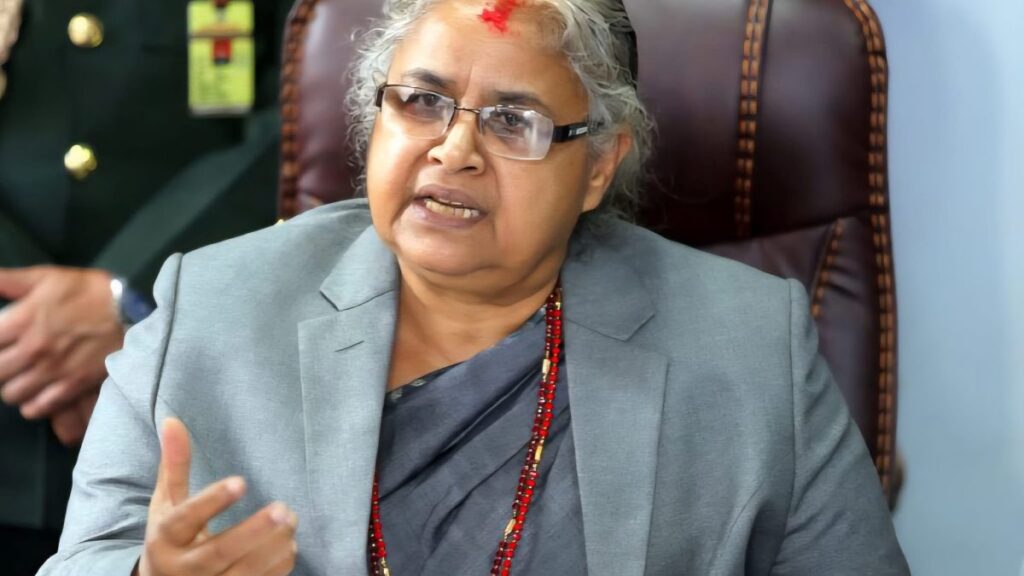Nepal has appointed Sushila Karki as its first female prime minister. The 73-year-old former Supreme Court chief justice takes office after deadly anti-corruption protests shook the nation.
Karki was sworn in after a deal between President Ram Chandra Poudel and protest leaders. Parliament was dissolved, and new elections are scheduled for 5 March next year.
Deadly Protests Shake Kathmandu
Protests began when the government banned 26 social media platforms, including WhatsApp, Instagram, and Facebook. The ban was lifted after a few days, but protests had already grown into a mass movement.
Rioters set fire to parliament and government buildings. Over 50 people were killed in clashes with police. Prime Minister KP Sharma Oli resigned amid the chaos.
Karki’s Role and Challenges
Karki is known for her clean image and is widely supported by students and young activists, especially Gen Z. She visited protest sites in Kathmandu and met injured citizens in hospitals.
Her interim government faces key challenges:
- Restoring law and order
- Rebuilding damaged government buildings
- Addressing public demands for change
- Bringing those responsible for violence to justice
Background of Nepal’s First Female PM
Karki comes from a family connected to the Nepali Congress party. She later married political leader Durga Subedi. Her husband’s support helped her rise from lawyer to chief justice in 2016.
Though respected for integrity, Karki has faced controversies, including an impeachment attempt during her tenure as chief justice.

